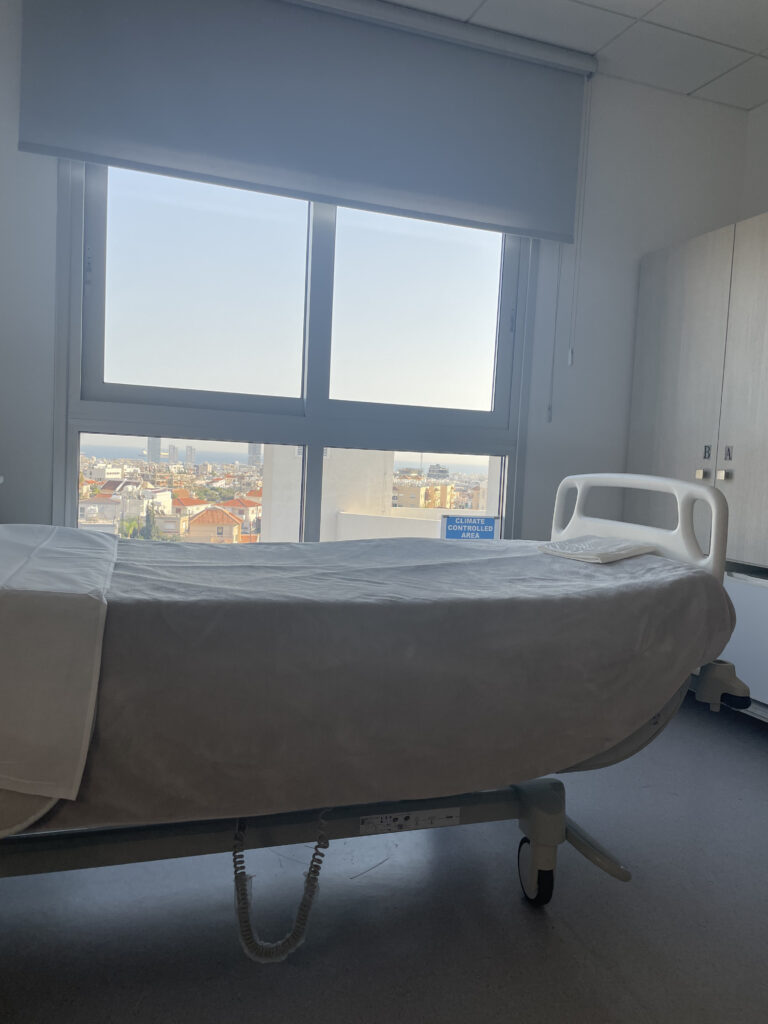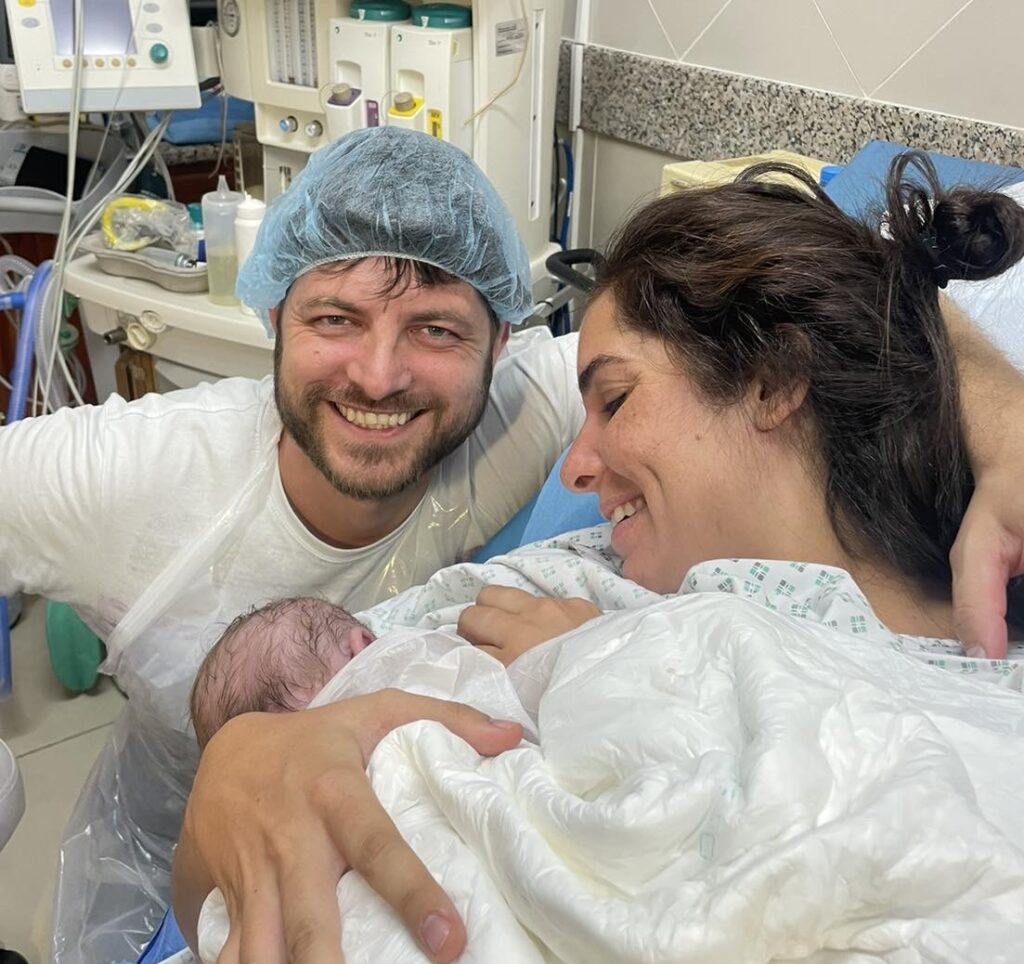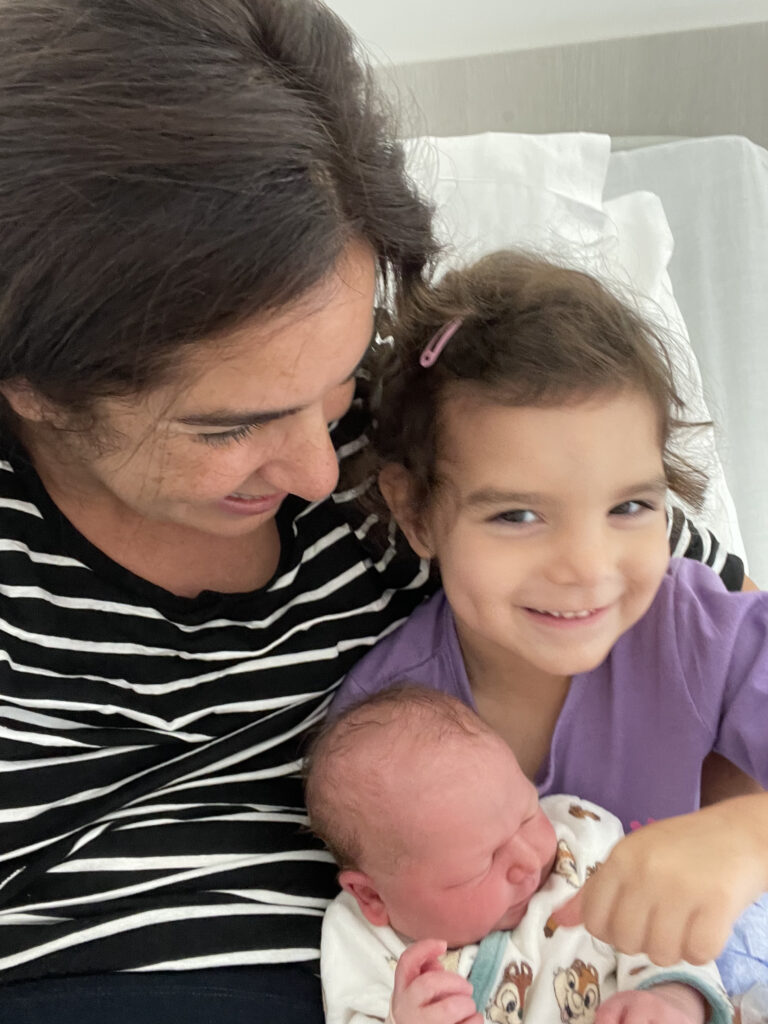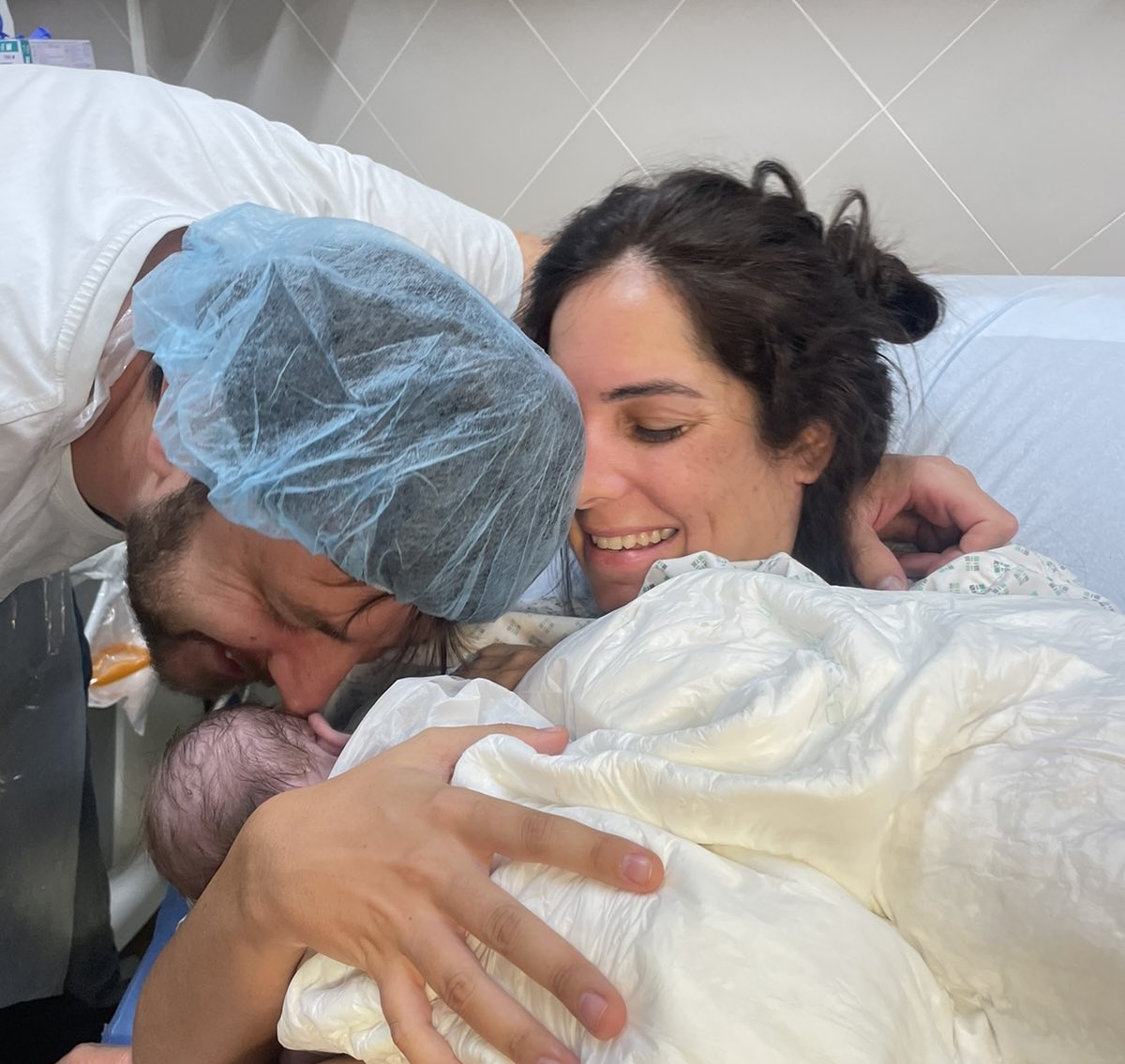Birth in Cyprus
I gave birth to my first daughter, Maya, in Israel at the Ichilov Hospital in Tel Aviv. Compared to the stories I heard from friends about their first birth experiences, I can say that mine was relatively reasonable, but it still wasn’t easy. I went through labor induction that lasted three days, and eventually, I received an epidural and Pitocin. Maya was born at 41+5 weeks, and by the time she came out, I was completely exhausted. Luckily, I had a doula with me who supported me in the delivery room and helped me relax, but the general feeling in the hospital was that I was part of a factory where they were just waiting for me to finish giving birth so they could clear the bed in the delivery room.
Even before we moved to Cyprus, I knew we wanted to get pregnant again, so I was certain that my next birth would be in a foreign country. It was a big change and a bit stressful, but before the move, I spoke with several women who had given birth in Cyprus, and they all described a positive and calm experience. This reassured me a lot, both regarding the move itself and the upcoming birth.
In Cyprus, the gynecologist (or obstetrician) who accompanies you during pregnancy is also the one who delivers the baby. In my opinion, this is a significant advantage, as you have certainty about who will be with you during those moments, and you can trust them, knowing that they are familiar with you and your pregnancy. The place of delivery is determined based on the hospital or clinic where the gynecologist works. In my case, the birth took place in a small and intimate clinic close to our home. When I arrived in labor, I was one of the only women there, and the two nurses who assisted me helped with exercises to reduce the pain of contractions.
We chose to have a private room with two beds, at a cost of 150 euros per night, and it was worth every penny. Roman was by my side throughout the entire process, and the nurses were wonderful – they kept checking on me to make sure I was comfortable and did exercises with me on a physio ball to ease the pain of contractions.

When I reached 8 cm dilation, they took me to the delivery room. My gynecologist arrived, along with the pediatrician we had chosen in advance to examine the baby immediately after birth. In Cyprus, parents can choose their pediatrician to accompany the baby from the very beginning, and in my case, it was the same doctor who had taken care of Maya. She was amazing and also a lactation consultant, which was very important to me because I wanted to breastfeed immediately after birth and know that there was someone who would support me and make it possible.
I gave birth to Sophie naturally, without an epidural. One of the nurses even took a photo of us after the birth, which became a particularly touching keepsake.

After the birth, the doctor examined Sophie, and then we moved to our room and ordered sushi from Wolt 🙂 and honestly, I felt like I was in a boutique hotel because we kept ordering food and drinks from Wolt, and the orders were delivered directly to our room.

It’s possible that even if I had been in Israel, the birth would have gone quickly like this since it was my second birth, but I feel that the calm and reassurance I received from my gynecologist and the nurses around me had a significant impact on the overall experience.
The gynecologist I go to is named Maria, from The Fetal Medicine Centre Ltd in Limassol.
My daughters’ pediatrician is Elli Siama from the iliaktida clinic
Childbirth Costs in Cyprus
If you are eligible for Cyprus’ public healthcare system (GESY – General Healthcare System), childbirth costs will be minimal, as most expenses are covered. The main potential cost is for a private hospital room—for example, we chose a private room with two beds, which cost €150 per night.
If you are not eligible for GESY, your private insurance may cover childbirth expenses. However, if you do not have maternity coverage through private insurance, the cost of giving birth in a private hospital is approximately €4,000.
Giving Birth in Public Hospitals – When Do You Need to Travel to Nicosia?
Pregnant women may be referred to Makarios Hospital in Nicosia in the following cases:
- Preterm birth (before 32 weeks) – This is the only hospital in Cyprus with a high-level neonatal intensive care unit (NICU).
- High-risk pregnancy – In cases of serious medical complications for the mother or baby, such as severe preeclampsia, placenta previa, or uncontrolled gestational diabetes.
- Special medical referral – If the doctor determines that advanced medical equipment or specialists are required, which are not available in other public hospitals in Cyprus.
For low-risk pregnancies, women can give birth at public hospitals in Limassol, Larnaca, or Paphos, depending on their place of residence.





